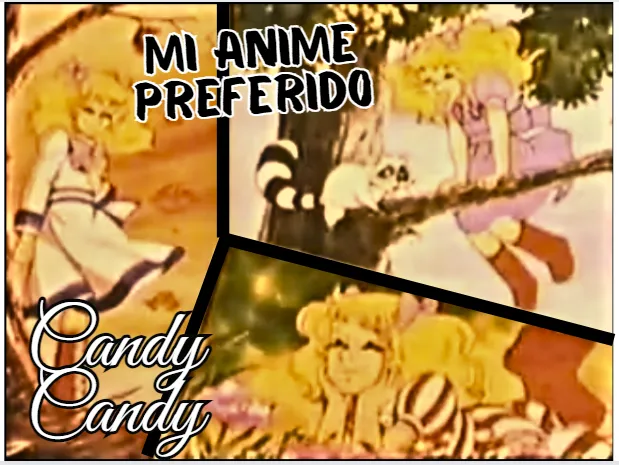

Mucho antes del boom actual de los ánime que se ve ahora entre los jóvenes, la oferta que había en el occidente del país era escasa, y de hecho, la consumíamos sin saber que se trataba de un ánime o inclusive que vinieran desde Japón, ya que venía con traducción a nuestro idioma.
Por eso es que en algún momento de mi vida me pregunté, acaso yo de niña veía ánime, y la respuesta es SI!!! De hecho resultaban ser muy populares entre los niños de mi época, en la que la TV tenía solo un par de horas por las tardes dedicadas a los dibujos animados. Pensar en TV satelital o canales especializados, era algo que nadie hacía para entonces.
Todo esto viene porque, aunque llego después de la fecha límite, no quería dejar pasar la invitación que me hiciera @adalathu para mostrarles mi anime favorito. Y si bien los que veo en la actualidad están increíbles, pues este fue el que marcó de alguna manera mi infancia.
Candy- Candy, la serie que nos marcó a todas las niñas de mi época, es un drama que viene del manga escrito por Kyôko Mizuki y Yumiko Igarashi, que nos narra la vida de esta niña huérfana y como luego de tantas experiencias en el hogar de acogida y con sus fallos en encontrar el amor, termina consiguiendo aquello que anheló durante toda su vida.
Nada que ver con los shonen que veo ahora, ya que esta serie es como una telenovela para niñas. Con ella reímos, lloramos y todas nos enamoramos de quienes eran los chicos que llegaron a ilusionar a Candy en diferentes momentos de su vida.
Aún recuerdo la escena en la que Anthony, su primer amor, muere luego de la caída de su caballo. Eso creo que marcó un antes y un después en más de una niña para entonces, ya que ese tipo de drama no se solía presentar en el resto de los dibujos animados que veíamos.
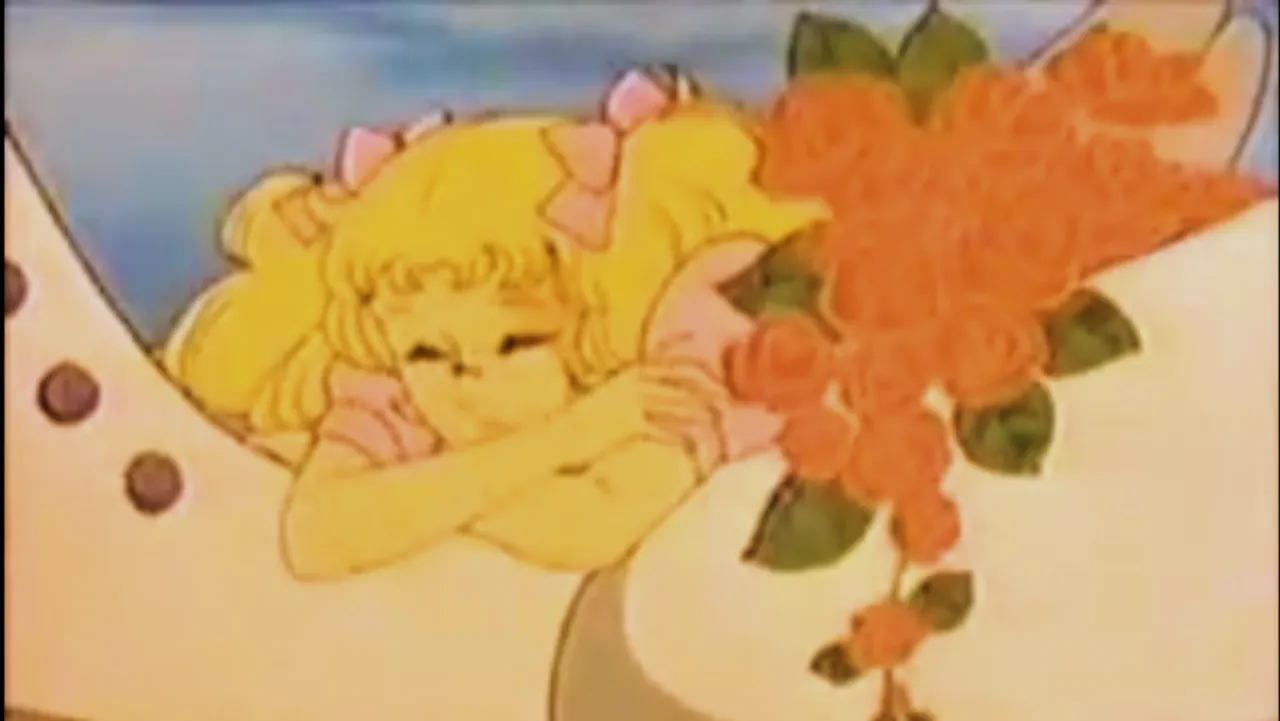
La hermandad y camaradería de ella con sus amigas, el rechazo de algunas por su condición social, las vivencias propias de la adolescencia, hacen de este anime, una joya que se puede extrapolar a cualquier época, pues aunque en algunos episodios pareciera ser muy "rosa", son cosas con las que las chicas pueden abierta o secretamente, sentirse identificadas.
Una anécdota divertida, es que para entonces, cada capítulo terminaba con la palabra "continuará" en japonés, y en mi escuela la mayoría terminabamos de escribir la clase, colocándo la misma nomenclatura al final de la hoja, como si de un capítulo se tratara. Con eso, ya sentíamos que dominábamos el idioma! Cosas de niñas.
A diferencia de lo que puedan decir sus detractores, tildándola de tener comportamientos poco adecuados y presentándola como un anti-modelo para seguir por parte de las espectadoras, yo considero que Candy refleja la inocencia de la niñez que se ha perdido hoy día, además de demostrarnos que el amor y la ternura están presentes en cada espacio.
Es una serie que aunque se presentan situaciones de noviazgo y amor en pareja, no se sexualiza en ningún momento, o se expresa de maneras agresivas, como pudiera decirse de Pucca, por ejemplo.
Más bien, es el reflejo de la evolución y los conflictos propios de una chica que está en crecimiento, y que además debe asumirlos por cuenta propia, ya que no tiene una madre a quien acudir cuando necesita una referencia de cómo debe vivirse la vida.

Much before the current boom of anime that we see now among young people, the offer that was available in the western part of the country was scarce, and in fact, we consumed it without knowing that it was an anime or even that it came from Japan, since it came with translation into our language.
That's why at some point in my life I wondered, did I watch anime as a child, and the answer is YES !!! In fact, they turned out to be very popular among the children of my time, when TV had only a couple of hours in the afternoon dedicated to cartoons. Thinking about satellite TV or specialized channels, it was something that nobody did back then.
All this comes because, even though I arrive after the deadline, I did not want to miss the invitation that @adalathu made to me to show you my favorite anime. And although the ones I watch now are incredible, this is the one that marked my childhood in some way.
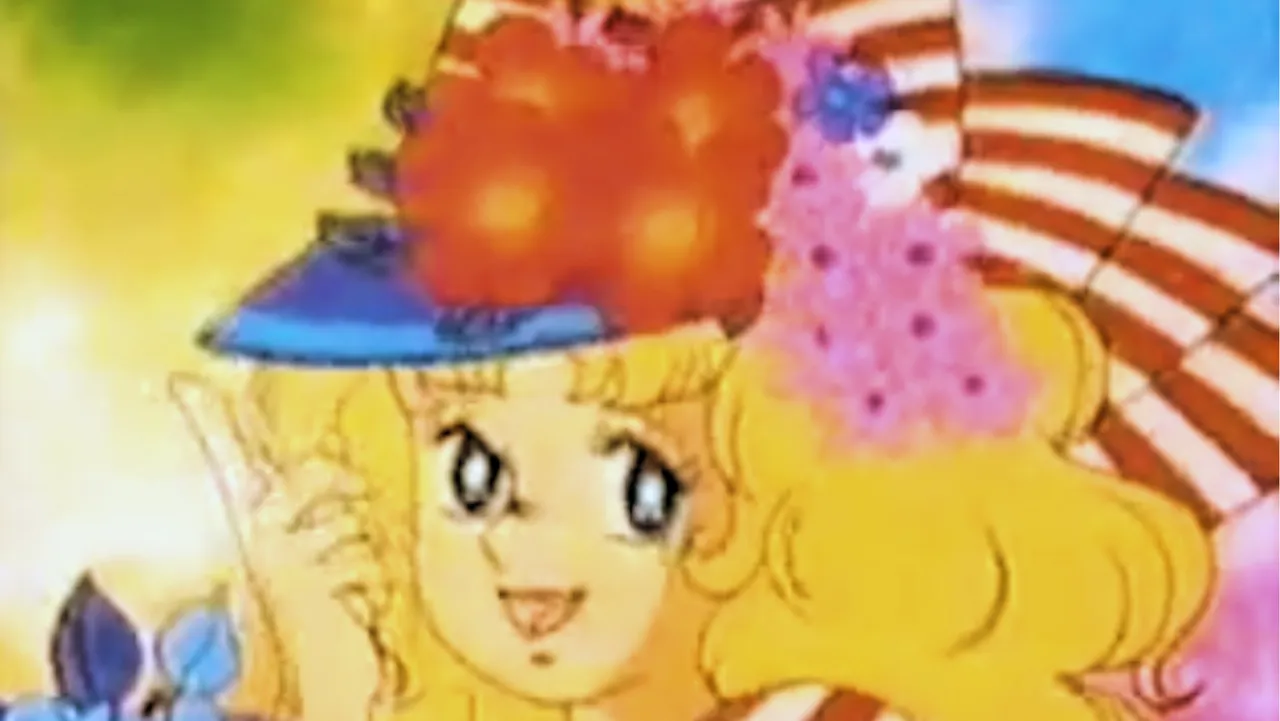
Candy-Candy, the series that marked all the girls of my time, is a drama that comes from the manga written by Kyôko Mizuki and Yumiko Igarashi, which tells us the life of this orphan girl and how, after so many experiences in the foster home and with her failures in finding love, she ends up getting what she longed for all her life.
Nothing to do with the shonen that I see now, since this series is like a soap opera for girls. With her we laughed, we cried and all of us fell in love with the boys who came to Candy's life at different times.
I still remember the scene in which Anthony, her first love, dies after the fall of his horse. I think that marked a before and after in more than one girl back then, since that type of drama was not usually presented in the rest of the cartoons we watched.
The brotherhood and camaraderie of her with her friends, the rejection of some for her social condition, the experiences of adolescence, make this anime a jewel that can be extrapolated to any time, since although in some episodes it may seem very "pink", they are things with which girls can openly or secretly, feel identified.
A funny anecdote is that back then, each chapter ended with the word "to be continued" in Japanese, and in my school most of us finished writing the class, placing the same nomenclature at the end of the sheet, as if it were a chapter. With that, we already felt that we dominated the language! Things of girls.
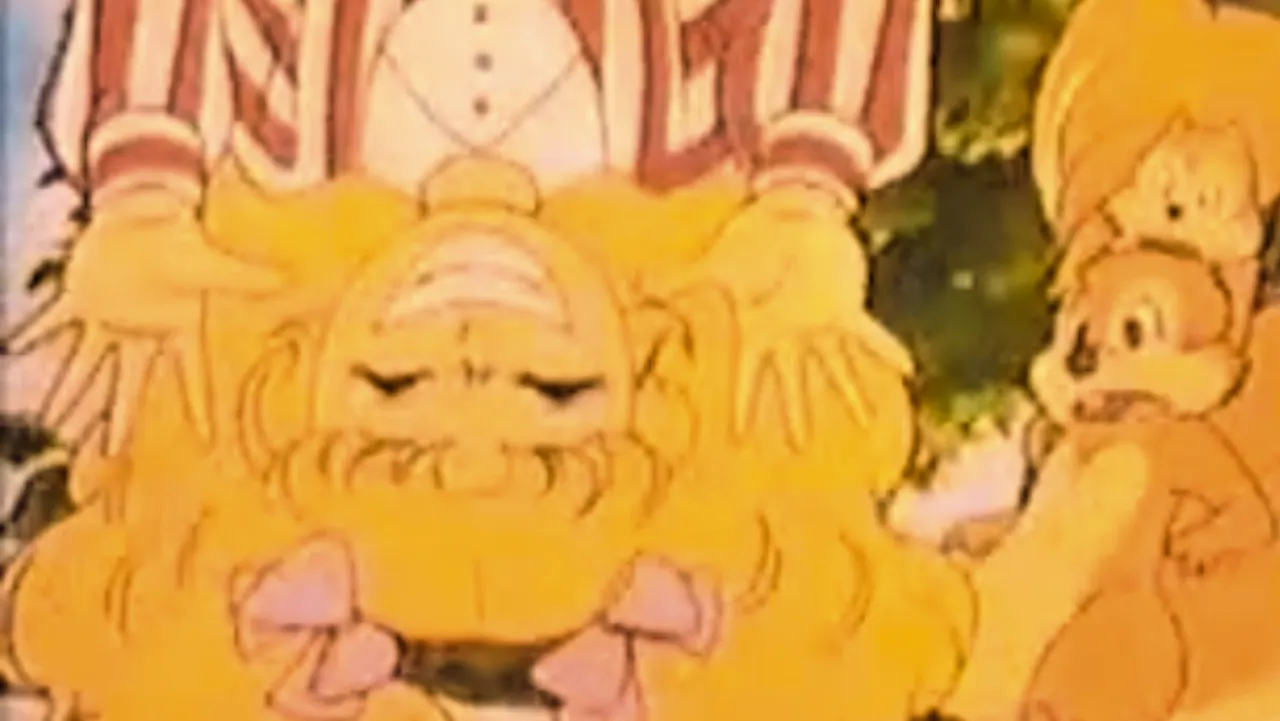
Unlike what their detractors may say, calling it to have inappropriate behaviors and presenting it as an anti-model to follow by the spectators, I consider that Candy reflects the innocence of childhood that has been lost today, in addition to showing us that love and tenderness are present in every space.
It is a series in which, although situations of dating and love in couples are presented, it is not sexualized at any time, or expressed in aggressive ways, as could be said of Pucca, for example.
Rather, it is the reflection of the evolution and conflicts of a girl who is growing, and who must also assume them on her own, since she does not have a mother to whom she can go when she needs a reference of how life should be lived.
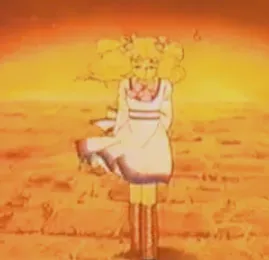
Foto/Photo by: screenshots from Candy´s trailer
Edición/Edited by @mamaemigrante using canva
Translated and formatted with Hive Translator by @noakmilo.
